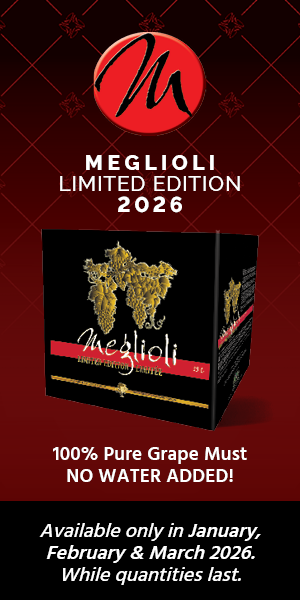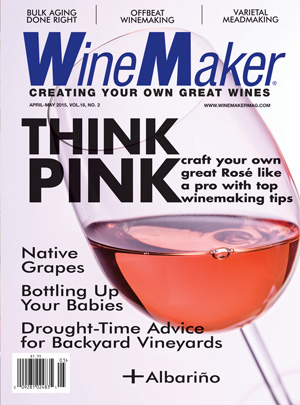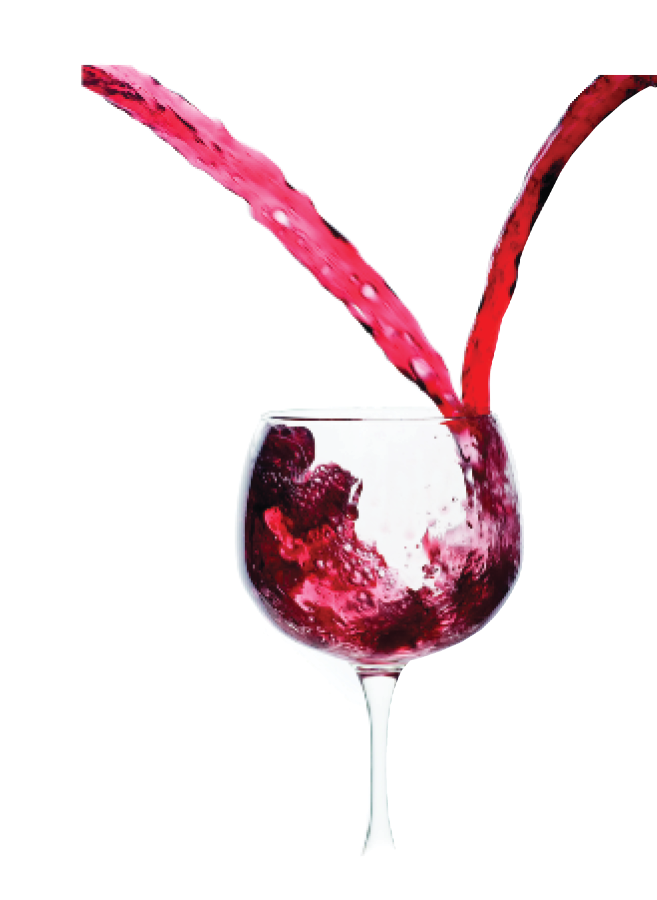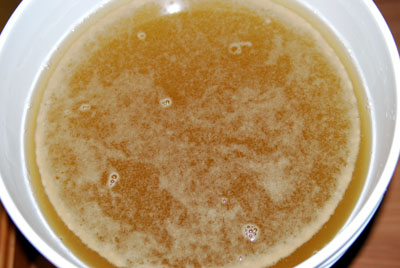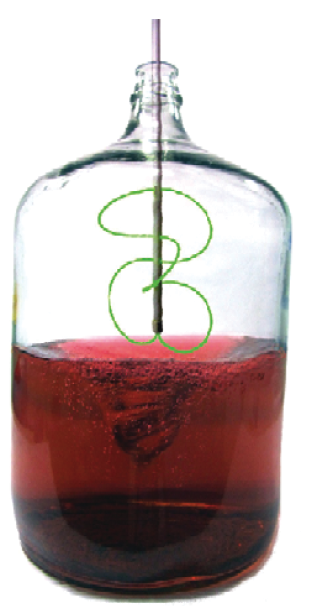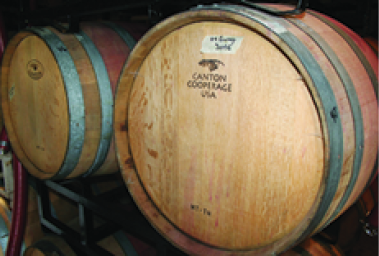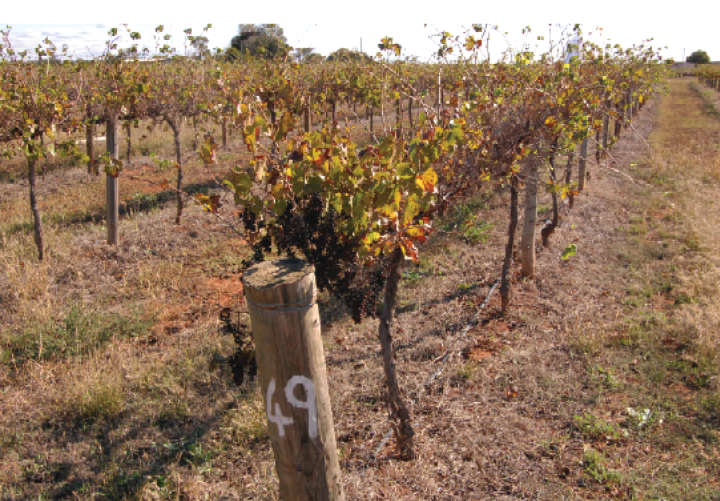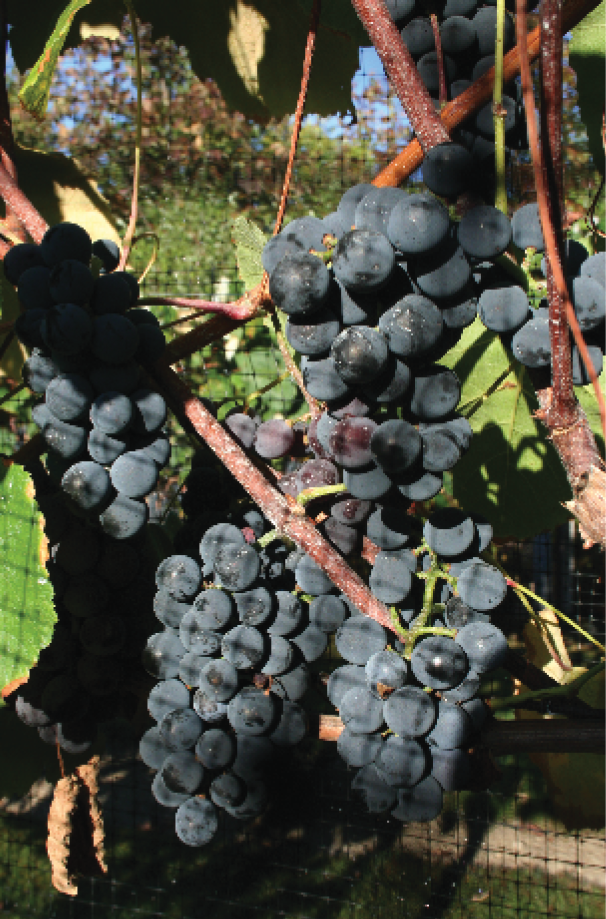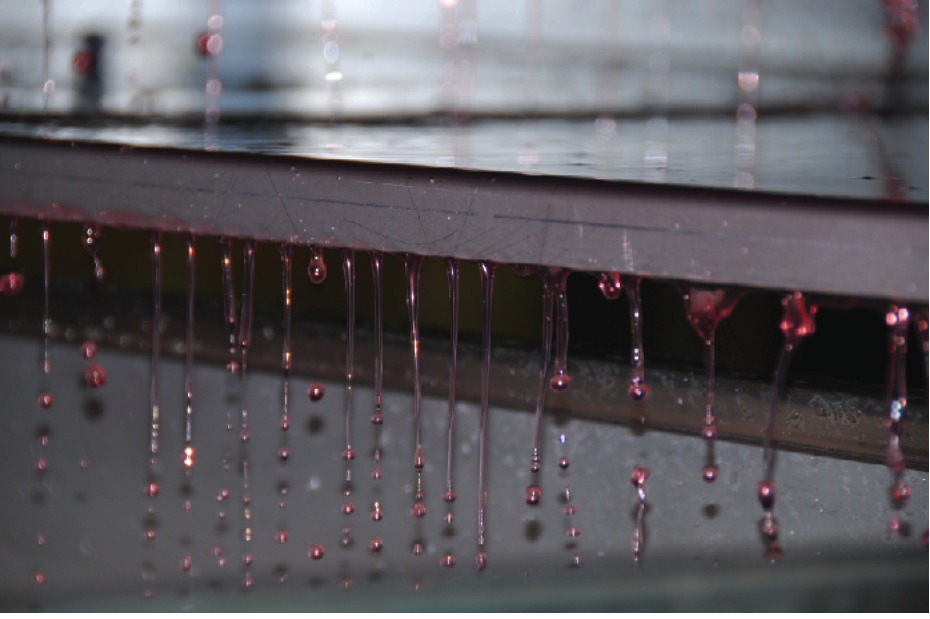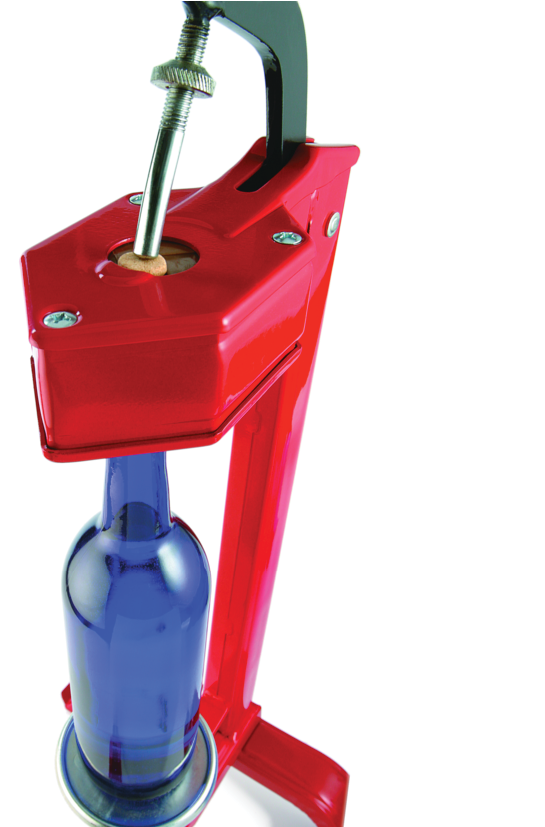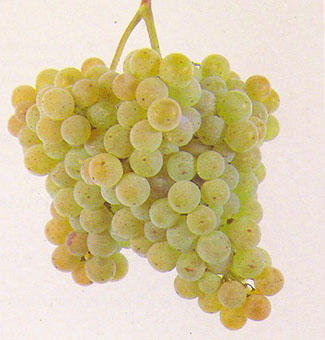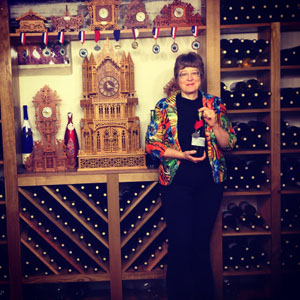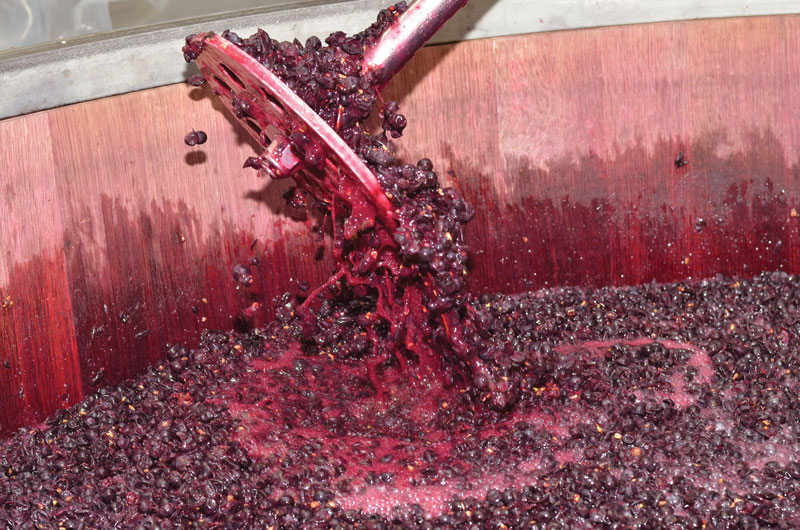Apr-May 2015
The Pearson Square
The Pearson Square is a tool to calculate the number of parts of two different solutions with different concentrations that are required to bring one of the solutions to a desired concentration. The Pearson Square can be intimidating to newbies, but when dissecting it piece by piece it is relatively straight-forward, and understanding it will pay dividends.
Fermentation Troubles, Natural Fining, and Get Your Swirl On
Some home winemakers cool down must ferments by freezing gallon water jugs and tossing them (closed tightly) into fermenting totes, bins or trash cans of must during a punchdown.
Get Your Swirl On
I say Toe-may-toe, you say toe-mah-toe . . . this sounds like a bizarre wine myth in the making that we should just quash right here. Though undoubtedly, swirling your wine glass
Natural Fining For White and Rosé Wines
Well, an old-timer winemaker I used to work with would say, “The most natural fining agent for any wine is time.” What he meant was that with time, solids fall out, proteins
Fermenting & Degassing Wine Kits
In this article I’m going to go into detail on the reasons behind two of the four most confusing concepts in kit winemaking: 1) Temperature, and why higher is better, and 2)
Bulk Wine Aging
There is more to cellaring bulk wine than meets the eye. Throughout the aging process, the winemaker is on a tightrope walk between intervening to prevent and correct problems while remaining relaxed enough to let good wine evolve naturally.
Drought Strategies for Grape Growing
Here is one truism of farming: Being prepared is always preferable to trying to fix an unexpected problem. Understanding the water needs of a grapevine is an important step to using as
Native American Grape Varietals
Botanists tell us that grapes are members of the genus Vitis, and the well-known European grape varieties are members of the species vinifera. (In case you’ve forgotten, a species is one rung lower in
Rosé Techniques Roundtable
Asking a winemaker if they make rosé should be like asking a winemaker if they drink beer. The two beverages, pink wine and a tasty lager, belong in any cellar and in
Making Varietal Honey Mead
Honey is a complex mixture of sugars, flavors from the pollen as well as trace enzymes, minerals, vitamins, and amino acids. The majority of the honey found in grocery stores is Wildflower
Bottling Your Wine
As renowned French wine scientist Emile Peynaud wrote, “Bottling is a very stressful operation for a wine and the enological problems it causes are numerous: Considerable oxygen uptake, keeping out microorganisms and
Fermentation Troubles
Hi Lauren, great question. There are so many steps along the way where a fermentation can get into trouble, or “go pear shaped” as my interns from New Zealand used to say.
Tomato, Jalapeño, Dandelion Wines: Tips from the Pros
Looking to try something new? You can make unique and wonderful wines from plants found in your garden or even growing wild in your backyard. Winemaker and Owner of TSJ Wine Blenders
Expire Dates
Of course the best thing you can do is check expiration dates on packages, boxes and vials. If you buy bulk loose powders (like tartaric acid in baggies from a larger sack)
